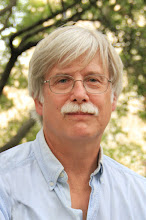Let’s delete Christmas.
That’s the thread that was running through my mind in the closing minutes of the work day today, a day of serial meetings, one flowing into the other, management team into leadership team, noodles in the lunch room which is a sort of meeting, then into convention planning followed by DDB event planning (Diana Butler Bass). This day, Wednesday, was an interruption in the normal work flow. A big interruption in the sense that very little work flowed out of the communication office.
Just two weeks ago Wednesday was a very different day as well, but one not as at odds with the regular rhythm. We met and then we went to liturgy to pray, reflect and receive ashes. Then returned to the business of applying prayer and reflection to effecting mission. It all seemed to fit, to be in concert.
The fact that the days were consistently gray, the snow covering persistent, and the temps traveling in a very narrow wave band could have played a big role in buttressing that rhythm. The sun was out in a major way today, blazing in a blue canopy, and working well past its normal shift of a month ago. That for me was a little disturbing, interrupting as it did my accommodations to an interior season, one more oriented to the interiors of our homes and our minds.
It’s not a season I relish in late September when I am counting the weeks left for green leaves on branches, and blooms in the beds. There’s definite dread in the countdown to a landscape of ashen gray and bare clay. It’s not just about losing color and scent and daily recreation. Or about the ache of witnessing six months of labor undone in two hard freezes. It is knowing that I now have to shift perspective and expectation. Put familiar tools away, and take out others shelved six months previous.
Gardening is about faith, of subscribing to the experience of dying and rising, year after year. Each dying and each rising is a decision, a painful one. We let go of one assumption, one perspective, to take on another, knowing full well it has a pretty short sunset clause. But not so short that we can’t reach accommodation, enter into a new mode of being. Trowel is exchanged for snow shovel; hiking boots for ski boots; porch light for lamp light.
And that’s why Christmas has to go. It comes too soon, arriving in mid-transition of fall into winter, and working against the score begun in Advent. In Advent we set a rhythm that should run clear and fluid to the shoreline of Easter, expanding in time with the rising arc of the sun. But Christmas juts in with a brassy score, out of tune with the themes of reflection, reconciliation, renewal. It’s a season of celebration at odds with the meteorological season and the spiritual one. For me it’s the shamwow commercial interrupting Schubert’s Symphony No. 9.
And much of it is sheer manufacture: the shepherds, angel, star, magi etc. The Puritans of Boston did not find much endearing about Christmas, and chose to ban it with a law that stood for 22 years, and custom that lasted into the early 19th century.
. . .it is therefore ordered by this court and the authority thereof that whosoever shall be found observing any such day as Christmas or the like, either by forbearing of labor, feasting, or any other way, upon any such account as aforesaid, every such person so offending shall pay for every such offence five shilling as a fine to the county." -- the General Court, Massachusetts Bay Colony May 11, 1659
Granted, there is not much endearing about Puritan perspective. But in the case of Christmas, I think they were on the right track, if not for the right reasons (resentment towards the Church of England). It is just 12 days long but long enough to disrupt the flow, and short-circuit the current that began flowing in First Advent. Epiphany becomes an afterthought, or roundabout for redirection. And instead of one culmination of the church year, Easter, we have a second highest holy day in which to certify our piety.
Deleting Christmas does not mean deleting the Incarnation. That must be brought back into Advent, its proper birthplace, and woven into the salvation story score. Just get rid of the other trappings, liturgical, ecclesiastical, and most definitely commercial. Otherwise, we just risk perpetuating an abbreviated experience of Christ’s journey to the Passion, reducing it to something like: He’s here! He’s great! He died! He’s alive! See you next Christmas.
How hard can it be, assuming you are not on the Altar Guild or the Standing Commission for Liturgy and Music, to forgo assembling Nativity scenes and orchestrating pageants, or to cancel caroling, and lay off the greening and de-greening? Okay, pretty darn hard if you have to face the pleas of your kids or the kids in Sunday School, or an irate music director. But it can be done, and in a way that incorporates all sensibilities.
Imagine four distinct but interwoven seasons: Advent-Epiphany, Lent, Easter, Pentecost. Each timed to the arc of the sun and the track of the jet stream. With one breath you fall from autumn into winter, and it carries you through to spring. Submerge and reemerge, wade into the Jordan and walk out drowning in the Holy Spirit, anointed with Good News to share on the shores of Galilee.




